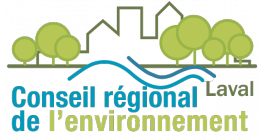
(TLN) Given the increasingly evident effects of climate warming on the environment, the Conseil régional de l’environnement de Laval is asking the provincial government to adopt a policy for regional wetland plans within the next five years.
Range of wetlands
According to the council, wetlands include different ecosystems such as swamps, marshes, bogs, fens and ponds. They have distinct fauna, flora as well as habitat and ecological functions. What they do have in common is the permanent or intermittent presence of surface or soil water.
Wetlands therefore have a large buffering capacity for excess rain water and flooding mitigation, which as well known, is expected to increase with climate change. Wetland value is widely recognized scientifically but also legally in Quebec.
Regional plan needed
“Regional county municipalities (RCM) or groupings of RCMs must adopt a regional wetland plan (Plan régional des milieux humides et hydriques) within 5 years,” the council says in a statement, while noting that Bill 132 concerning wetland conservation requires authorization from the Quebec Environment Ministry if a wetland is to be affected or destroyed.
Compensation of the affected area is also mandatory in order to achieve no net loss of wetlands. However, the council wonders whether wetlands in Quebec are well protected. On the one hand, they say, obtaining a certificate of authorization requires a request and a waiting period before it is successfully granted, although this is usually in most cases. The council concludes that a generic wetland is therefore not protected and could be potentially backfilled and destroyed.
Replacing wetlands
On the other hand, no net loss rule implies that any destroyed or altered area has to be recreated elsewhere, but without considering the pristine state of the wetland. A destroyed swamp could be compensated by a pond of equal area. Wetland ecosystems support different ecological communities and have specific functions such as controlling the water balance in a sector.
The council compares this to compensating for a damaged house with a tent of the same area without municipal infrastructures. The council notes that the City of Laval initiated a regional wetland plan by inventorying the city, which revealed 1,550 hectares of diverse and threatened wetlands. In 2018, the environment ministry gave out 14 permits and 14 more are pending or in evaluation.
Political will needed
“It takes decades to recreate the complexity and initial ecological functions of a new wetland,” says the council. “However, to conserve an existing and thriving one only takes a few minutes of political will. Wetland compensation should be but a backup when no options are available but is in no way a shortcut for sustainable development.”
The council maintains that the current authorization certification process “fuels irresponsible development by making ecological destruction socially acceptable. Our lax system is allowing loss of our natural and common legacy. Our resilience to climate change is provided by these urban ecosystems: the forest cools us, ponds mitigate floods, swamps are outstanding habitats and marshes retain heavy metals.
Fighting with sand bags
“We are fighting global natural catastrophes with sand bags and air conditioning while voluntarily heading towards a wall of failure,” they continue. “What we need is a solid conservation plan to protect ecological services which we depend on.”
The council points out that New York City protected the state’s Catskills forests to secure the water supply, instead of building an inefficient water plant. “We know the risks related to climate change and have solutions to mitigate them,” they say. “We have to stop this irrational and short-term profit-oriented destruction of wetlands, or in five years, our regional wetland plan will be very dry.”














